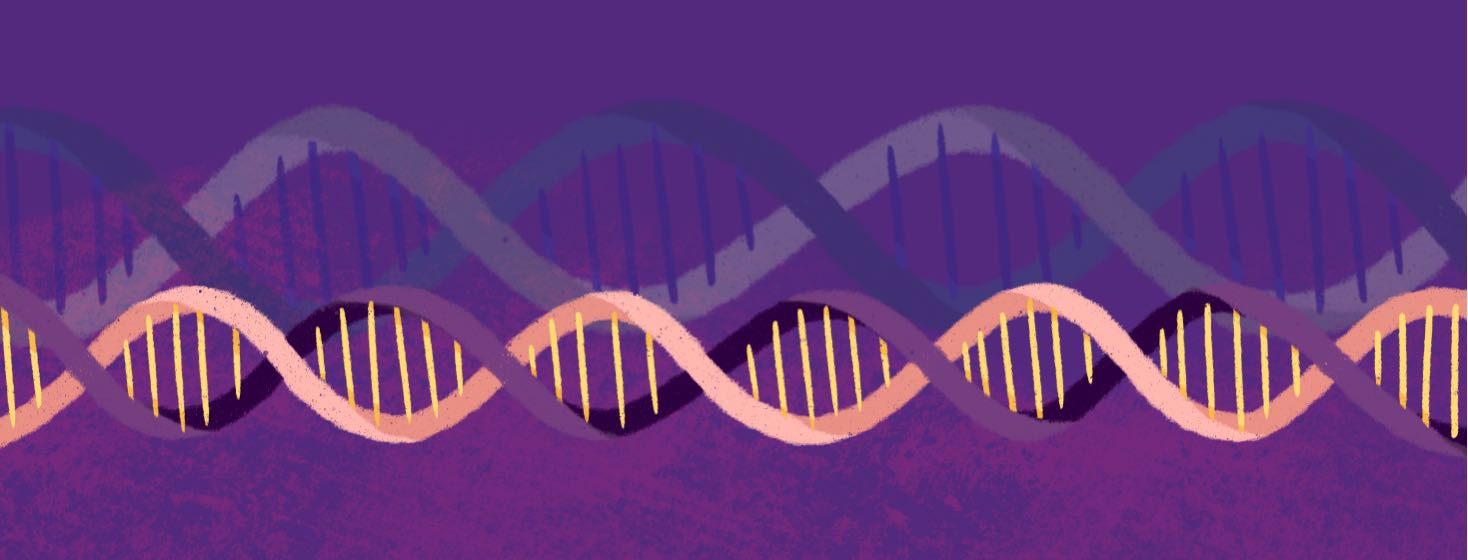What Are Genetic Mutations, and What Do They Mean for Prostate Cancer?
When prostate cancer occurs, cells in the prostate begin to abnormally divide and form a tumor. The outlook for prostate cancer varies depending on how early it is diagnosed and how aggressive the cancer is.1
In some men, the cancer grows very slowly and will not cause problems, even if left untreated. For other men, the cancer is aggressive and must be treated quickly. It is possible for prostate cancer to spread (metastasize) to other parts of the body.1
Like other forms of cancer, prostate cancer is caused by changes to genes that control the way our cells work, especially how they grow, divide, and reproduce. These changes are called genetic mutations. They are what allow cells to uncontrollably grow to form a tumor.1,2
Gaining a better understanding of genetic mutations and how they apply to prostate cancer can help guide more effective diagnosis and treatment.
What are genetic mutations?
The body is made up of a complex genetic code called DNA. This code holds instructions for our cells that tell them how to reproduce and grow. A genetic mutation is a change to this code.1
DNA tells our body how to produce protein, which is necessary for healthy cell function. Some genetic mutations cause the overproduction of a specific protein that promotes cell growth. This leads to tumor growth. Other types of genetic mutations cause proteins that would normally help repair cell damage to stop working.2
Genetic mutations can happen for several reasons. They can:2
- Be inherited
- Develop due to exposure to things like tobacco or radiation
- Result from exposure to certain viruses
The mutation may be as simple as 1 unit of missing DNA, known as a nucleotide. Some mutations may be more complex, involving longer chains of DNA that are deleted, repeated, or moved from their original sequence.2
What is their connection to prostate cancer?
For decades, researchers have known that genetic mutations can play a key role in breast and ovarian cancers. They are now starting to realize that many of these same mutations may also increase a man's risk of developing prostate cancer.2,4
A man is 2 to 3 times more likely to get prostate cancer if a first-degree relative (father, brother, or son) had or has it. The risk increases with the number of family members who had or have breast, ovarian, or pancreatic cancer.2,4
About 5 to 10 percent of prostate cancers can be linked to inherited genetic mutations. These genetic mutations can also cause breast, ovarian, and other cancers. The most well-known of these genes are BRCA1 and BRCA2. Research has found that the BRCA2 mutation is linked to more aggressive prostate cancer.1,2
Research has also identified other inherited gene mutations that can increase the risk of prostate cancer, including:1,2
- HOXB13
- MLH1
- MSH2
- MSH6
- PMS2
- EPCAM
Screening for genetic mutations
Ongoing research shows that screening men for BRCA and other gene mutations may help those who are at high risk for prostate cancer. Some research also suggests starting prostate cancer screening for carriers of the BRCA1 or BRCA2 genes at age 40 rather than the standard recommended age of 55.4,5
To find out if you have a gene mutation linked to prostate cancer, first talk to your doctor about genetic testing. They may send you to a genetic counselor who can order the test and discuss the results with you.
The National Comprehensive Cancer Network suggests that men should consider genetic testing if they have a Gleason score of seven or higher and at least 1 of the following:6
- At least 1 close blood relative with breast or ovarian cancer at age 50 or younger, or
- At least 2 family members with breast, ovarian, or prostate cancers (with a Gleason score of 7 or higher) at any age
If gene mutations are present, setting up screening and monitoring plans with your doctor can help detect prostate cancer earlier, when treatment can be more effective. If you have gene mutations linked to prostate cancer, other family members may also want to think about testing. This will tell them if they also carry the same gene.4,5
However, it is important to note that not all men with inherited gene mutations linked to prostate cancer will go on to develop the condition. Talk to your doctor about what screenings and tests are right for you.4,5

Join the conversation